The Ministry of Water in collaboration with the Water Institute organized Maji Week Scientific Conference between 4th and 5th April, 2022 at Julius Nyerere International Convention Centre (JNICC) in Dar es Salaam, Tanzania. The main theme for this year’s conference was “Water Resources Management for Sustainable Water Supply and Sanitation Services”. This year’s theme is in line with the Tanzanian Development Plan 2025, i.e. “ensuring accessibility to safe water to all”.

The guest of honor, Deputy Minister for water Hon. Eng. Maryprisca Mahundi posed in a group photo with some conference’s participants
The Guest of Honor, Deputy Water Minister, Hon. Eng. Maryprisca Mahundi (MP) argued water engineers, scientists, practitioners and all water stakeholders to openly communicate the science and various information that will be used in tackling various water challenges for revolutionary water sector’s improvement.
During this national event, the UNESCO Chair on Ecohydrology and Transboundary Water Management of Sokoine University of Agriculture (SUA) participated effectively through presentations in parallel sessions (i.e. Water resources management; Water supply and Sanitation Services; and Water Management Technologies and Techniques).
About 10 papers out of 60 accepted abstracts were presented by young scientists and students hosted at the UNESCO Chair on Ecohydrology and Transboundary Water Management of SUA. These papers includes:
- Analyzing the environmental problems in climate stressed river basins: experience from Mara River, Tanzania;
- Promoting Ecohydrology as nature-based solution and tool for river basin and watershed management in Tanzania;
- Characterization on water flow and discharge along Kilombero River sub-basin, Morogoro;
- The economics and costs of water provision for watershed management in Morogoro Municipality, Tanzania;
- The influence of physico-chemical parameters on fish and pelican mortalities at Lake Natron Ramsar Site;
- Use of physico-chemical parameters to assess the impacts of anthropogenic activities on Pinyinyi River Water quality, Arusha, Tanzania;
- Assessment of Morogoro River health using the macroinvertebrates as Bio-indicators;
- Watershed degradation and Water provision in Morogoro Municipality, Tanzania;
- Ecohydrology: A nature -based solution for regulating anthropogenic impacts on river basin and riparian vegetation; and
- Ecohydrological Biofiltration systems for urban water safety improvement
Young scientists from the UNESCO chair on Ecohydrology and Transboundary Water Management of SUA posed for a group photo
Moreover, two students Mr. Neshafati Fwaya and Mr. Geofrey Mng’ongo won the 2nd and 3rd runner positions on young researcher awards during the Maji Scientific Conference. The UNESCO chair is so grateful and looking forward to nurturing more talented students in future.
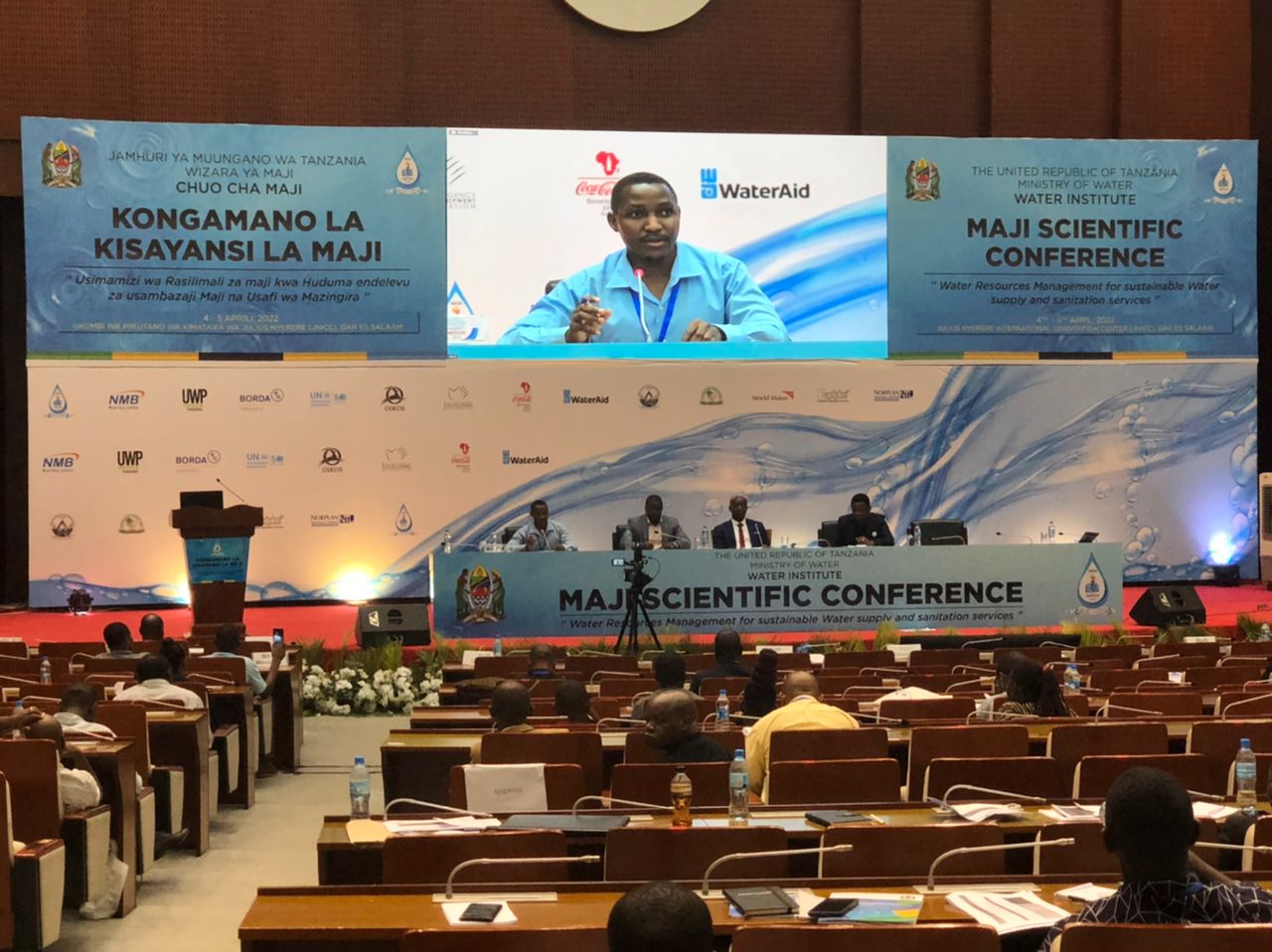
Mr. Neshafati Fwaya who won the 2nd runner positions on young researcher awards.
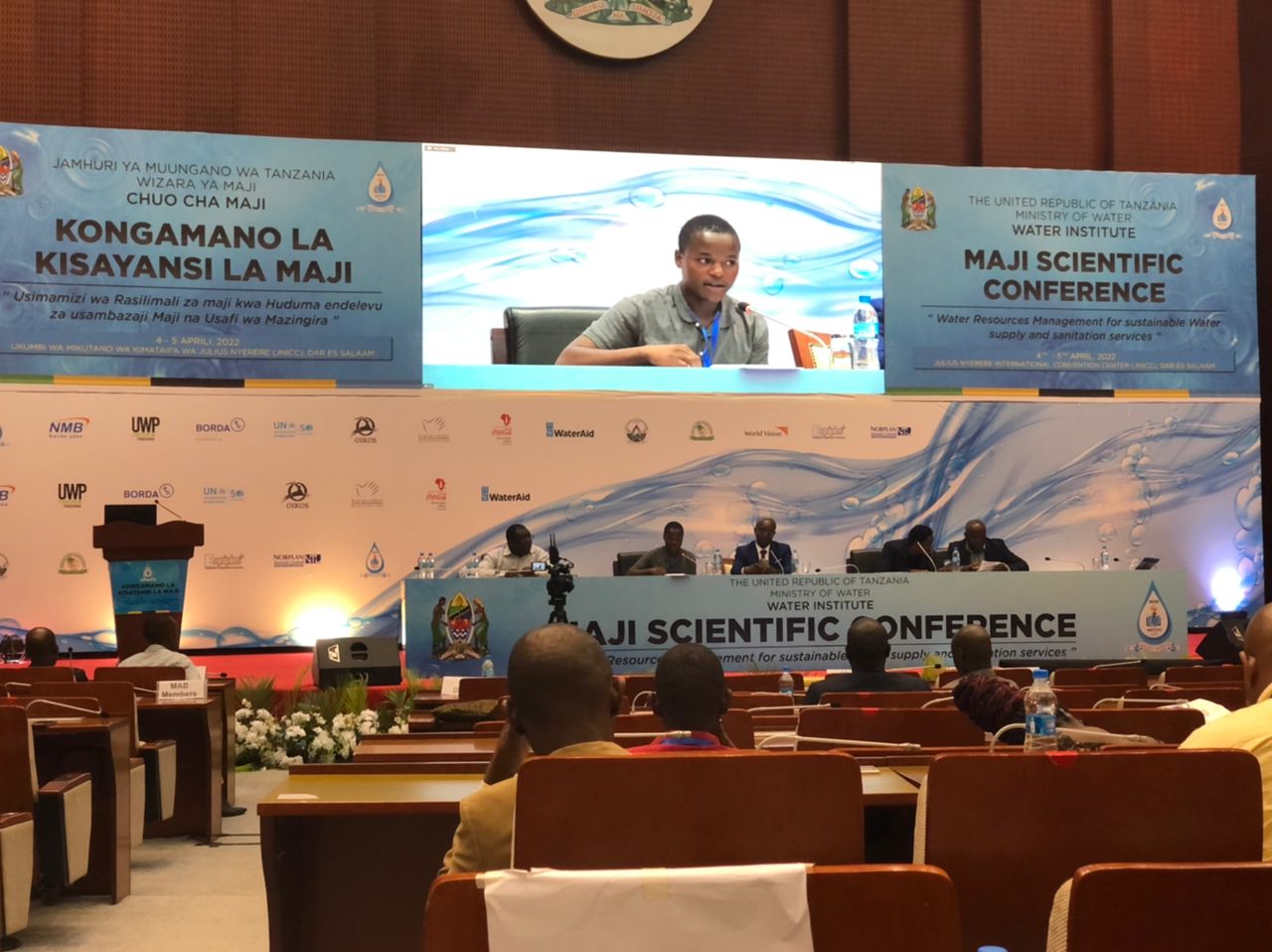
Mr.Geofrey Mng’ongo who won the 3rd runner positions on young researcher awards.
More photos are displayed below
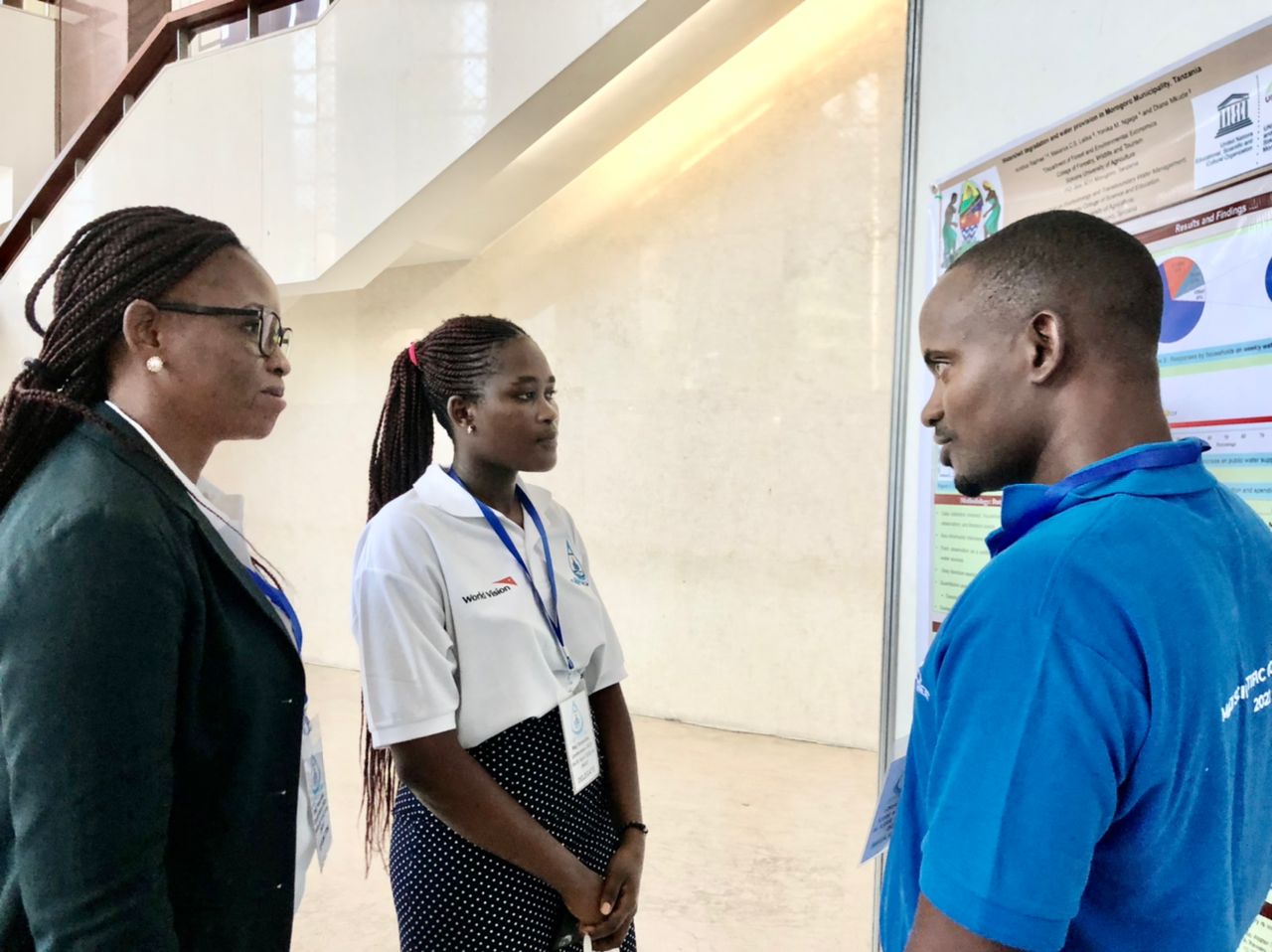
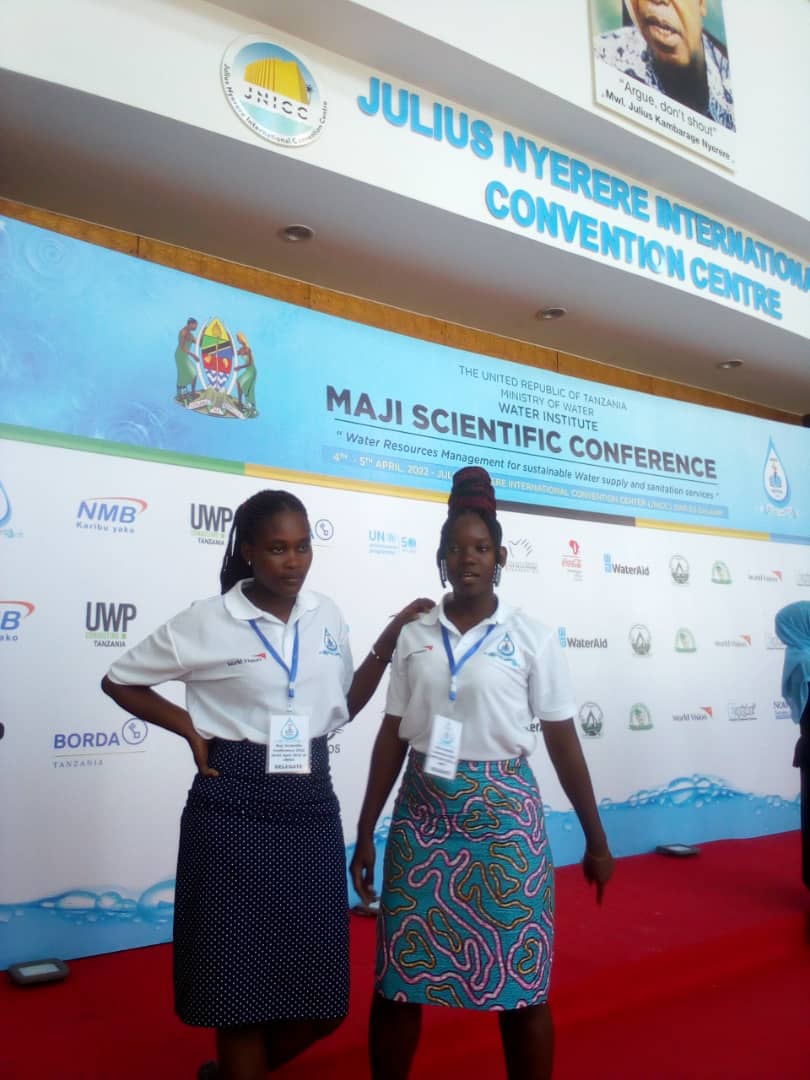
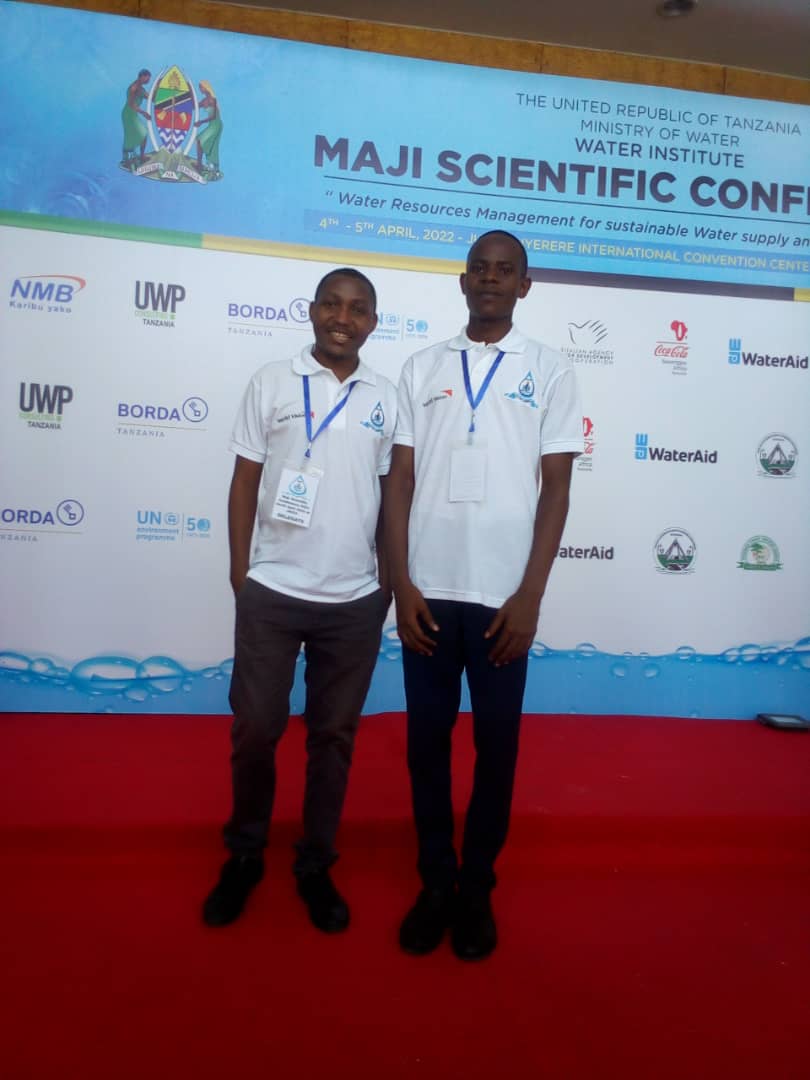
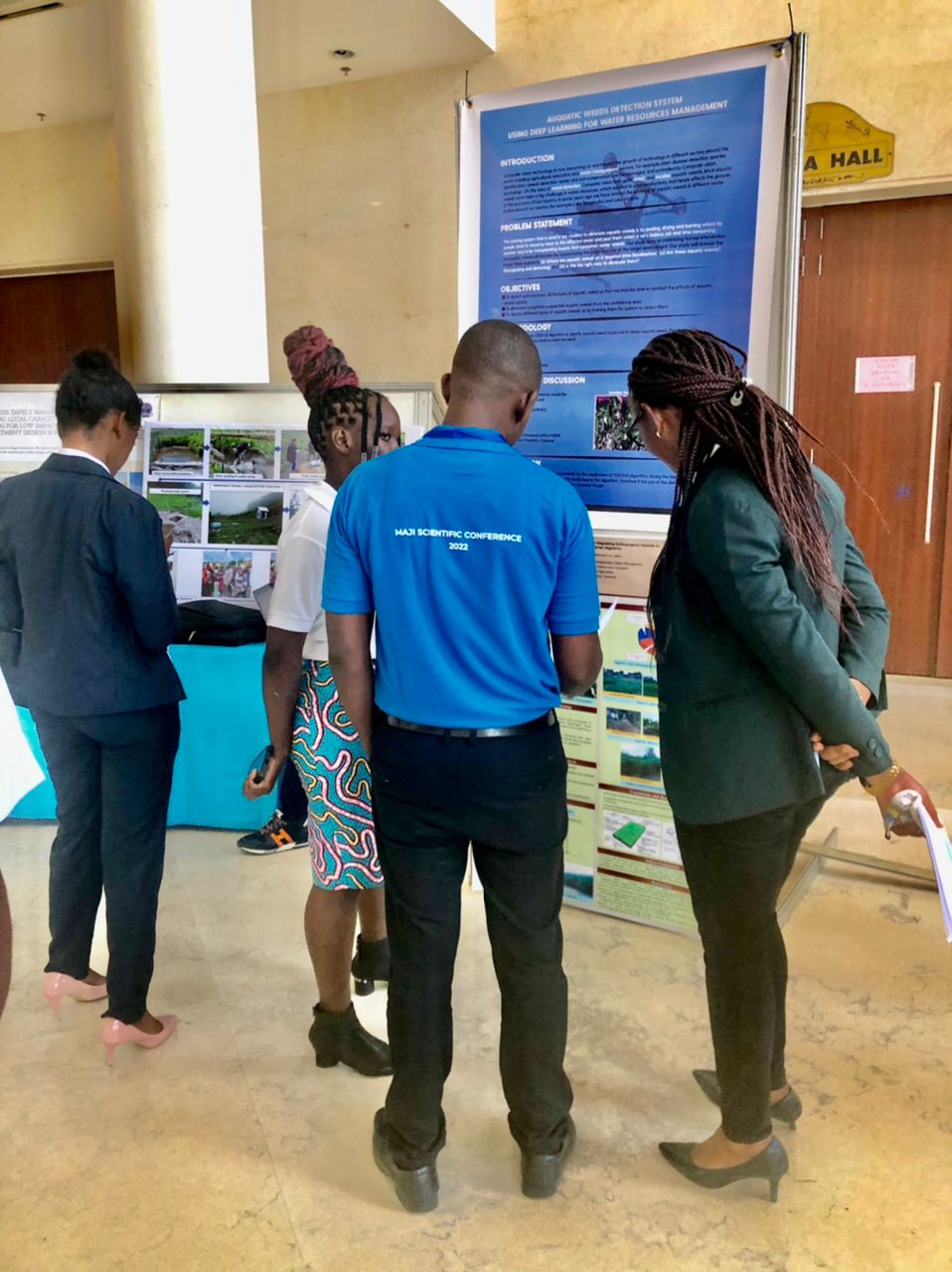
Photos taken during the water week event inside Julius Nyerere Convention Conference Centre, Dar es Salaam Tanzania
Way forward
The UNESCO chair is looking forward to attending more events akin to this and strengthening research and partnerships with stakeholders dealing with water management in Tanzania.
For more information and clarification kindly contact:
Dr. Makarius C.S. Lalika and Ms. Clara Mwasota;
UNESCO Chair on Ecohydrology and Transboundary Water Management,
Sokoine University of Agriculture,
P.O. Box 3038 Morogoro TANZANIA
E-mail: lalika_2mc@sua.ac.tz; clara.mwasota@sua.ac.tz




